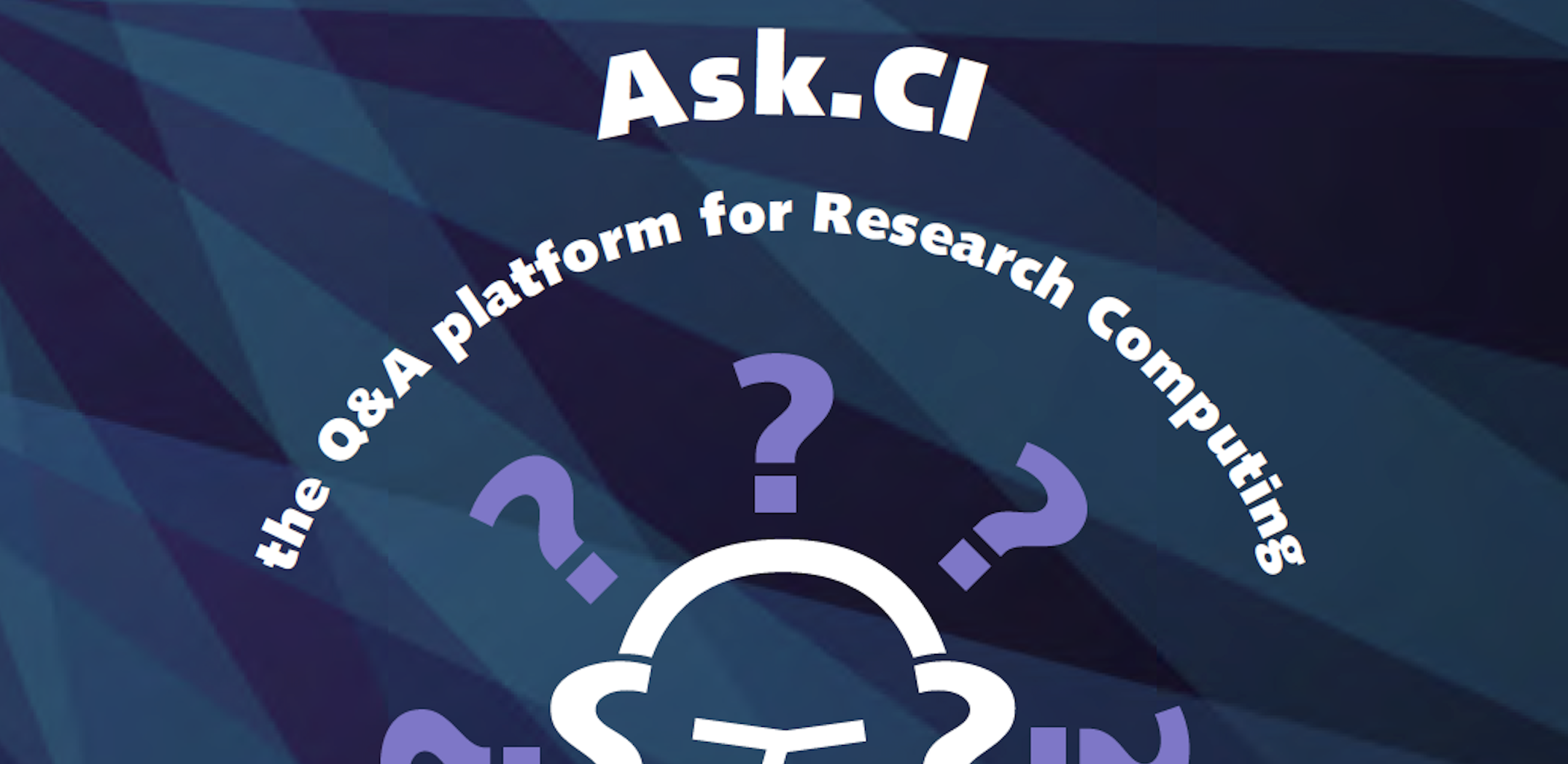
Helen Hill | MGHPCC News
A Q&A about the new research computing Q&A tool being developed in collaboration with the MGHPCC
Ask.CI is a Q & A platform for people who do research computing - researchers, facilitators, cyber-infrastructure engineers, system administrators and others.
Addressing technical topics of interest to the research computing audience, it has been designed to aggregate answers to a broad spectrum of questions that are commonly asked as researchers utilize advanced computing resources, creating a self-service knowledge base.
Part of the Northeast Cyberteam, a 3-year NSF funded initiative to make advanced computing more accessible researchers at small and mid-sized institutions in New England that may not have critical mass so support these resources on campus, Ask leverages the work of national programs including XSEDE Campus Champions, ACI-REF and others. The Northeast Cyberteam Initiative is led by the Massachusetts Green High Performance Computing Center (MGHPCC), University of Maine, University of New Hampshire, and University of Vermont, with support from the University of Massachusetts system and Worcester Polytechnic Institute.
MGHPCC news recently sat down with Northeast Cyberteam Project Leader and mentor Julie Ma to find out more about this new resource.
Q: What is Ask.CI?
A: Ask.CI is a web-based tool which provides a centralized, searchable, archived mechanism to aggregate expert knowledge that is widely distributed throughout the research computing community. A joint project of the Northeast Cyberteam and the Campus Champions, it was launched in July, 2018 at PEARC18.
Q: What are some of the goals of Ask.CI?
A: Our principal goal is to build a technical Q&A site addressing topics of interest to both facilitators and practitioners of applied research computing. We envisage a forum active with many new questions every day, multiple answers per question, and many thousand daily visitors from among the global community of people engaged in research computing. Among the benefits of such a tool will be to reduce duplication of effort, provide an archived, searchable resource for groups that can’t afford their own Q&A list, increase collaboration within the global research computing community, while also hopefully elevating the practice of research computing.
Q: How does it work?
A: Simply put, when a user posts a question, experts post answers that the community then votes on with the best answer rising to the top. The result is a high impact platform for sharing technical knowledge and boosting productivity where the focus is on expert Q&A, rather than open-ended discussion.
Two mechanisms that are key to the operation of the site are voting and badges:
Voting allows the community to keep content current. When a visitor to the site sees a question that seems particularly well written, relevant, important or otherwise exemplary for the research computing audience, they vote for it. Topics are listed in order of votes, with answers to a particular question also shown in order of votes so the best questions and answers always rise to the top.
Badges exist as a way to show each user’s activity and support for the site. Multiple badges are created by default by the site, but on occasion the site also creates special badges. This week for instance badges will be marking the International Conference for High Performance Computing, Networking, Storage, and Analysis, SC18, taking place November 11-16 in Dallas, TX.
Q: How can I get involved?
A: Go to: https://ask.cyberinfrastructure.org. Sign up and log in! Then:
And if you happen to be attending SC18, drop by room D174 of the Kay Bailey Hutchison Convention Center in Dallas on Thursday, November 15 at 12:15pm for the project’s Birds of a Feather “On Launching Ask.CI, a Q&A Platform for Research Computing, Using StackExchange and Discourse”